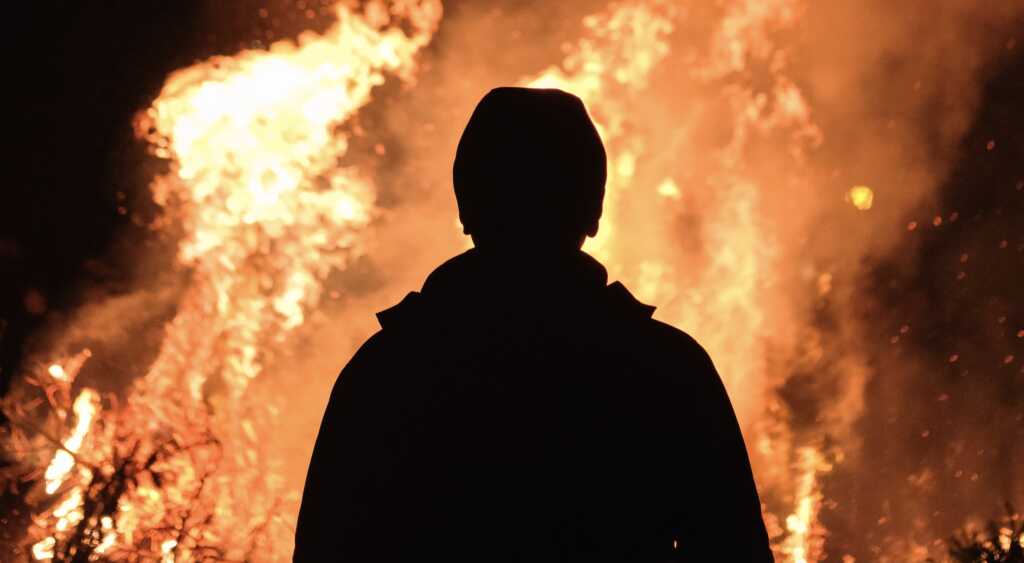Deliverance. Exorcism. Possession. Healing. These are all terms under Christondom’s spiritual warfare umbrella that might mean different things to different people, with discussion and theological debate around each concept increasingly percolating.
Listen to the latest episode of CBN’s Quick Start podcast 👇
The rise of deliverance ministry in some quarters is growing, though the broader concepts of demonic oppression and possession have been discussed in secular and Christian sectors for millennia.
Mike Signorelli, pastor of V1 Church in New York City, recently told CBN’s Faithwire about his deliverance efforts, responded to critics’ questions, and explored what it means to achieve spiritual healing.
“The word ‘deliverance’ is not in the Bible; it’s a newer word,” Signorelli said. “You’re not going to find a deliverance ministry in the Bible. What you will find is Jesus casting out demons, you’re going to find His disciples casting out demons, you’re going to find Him commissioning 70 people to go do it.”
While some people’s only frame of reference for evil is Hollywood’s presentation of intense exorcism — a phenomenon many faith leaders note is rare — Signorelli said these spiritual issues might present themselves in starkly different ways.
Possession indicates ownership of sorts, though oppression is more of a spiritual pressure exerted on a person, not necessarily indicative of the types of full spiritual control seen in films like “The Exorcist.”
“In the New Testament, where someone has a demon, the Greek word [is] actually ‘demonized,’ which really means ‘to be under the influence of a demon,'” he said. “And so it helps to understand the difference between oppression and possession.”
Watch Signorelli explain these concepts:
Signorelli said there can be varying degrees of spiritual influence on Christians from the demonic, though he doesn’t believe full ownership of a Christian would be biblically possible.
For the non-believer, though, he said a full possession is plausible since these individuals don’t have the protection of the Holy Spirit.
“When you listen to the words of Jesus, [he] was very binary,” Signorelli said. “It was very black and white … Either you are a son of God or you are son of Satan.”
Of course, simply stating one is a Christian and truly living out that faith claim are two different dynamics entirely.
“I’ve done revival tours all over the world and I always ask people, ‘By what standard are you a Christian, because standing in a garage does not make you a car, just like standing in a church doesn’t make you a Christian.”
Regardless, when a person feels he or she is dealing with true evil, people like Signorelli perform a deliverance, an effort to prayerfully and “forcibly remove demons.”
“The original context of the language that’s used when we talk about casting demons out, it’s not casting them off, it’s casting them out,” Signorelli said. “And the reason why I think that’s important is because, when we accept Christ as our Savior, our spirit is regenerated.”
But while the soul experiences this healing, he said the body does not, noting how believers still die of diseases and experience physical ailments.
Signorelli also noted how Jesus sometimes cast out a spirit of infirmity in the Bible, explaining how people experienced what appeared to be spiritual illnesses impacting their earthly bodies.
“The same Christians that somehow believe that they have the Holy Spirit dwelling on the inside of them but are capable of all this sin for the rest of their life cannot fathom the idea that a demon could be influencing them and need to be cast out of a certain area of their triune being,” he said. “And I think that’s really the big discussion right now — is it possible to be under the influence of a demon in your mind but your spirit’s regenerated?”
Signorelli said he believes such a dynamic is possible and should turn Christians toward “true repentance” and clearing out areas of their lives in which they struggle.
“None of us would admit that we have an infestation of cockroaches in our house because we think that’s a reflection of us,” he said. “But the problem is, if you’re like, ‘No, the cockroaches are around my house; they’re not in my house’ … unfortunately your house never gets clean.”
Signorelli said the deliverance process is a prayerful one that calls people to confess Jesus as their Savior, repent, and draw out the issues with which they struggle.
“I make it very clear [what it means] to actually be a believer and then, after that, we begin to take people through a process of renouncing, because, actually, that’s a word that shows up from Jesus clear on through the New Testament,” he said. “I challenge anybody listening — go do a word study on the word ‘renounce’ — renounce means to hate, it means to detest.”
Signorelli continued, “So, when you renounce something that’s legal language in a kingdom to say, ‘OK, the ways of heaven are completely opposite of the ways of this world, and I hate this sin, I hate this addiction, I hate — I detest it, I renounce it, I refuse to go back.'”
The preacher said he believes this is when people will often experience manifestations of evil during a deliverance, expressing his belief demons “hate” when Christians begin to talk this way.
It’s in that part of the process when he said he and other deliverance ministers will expel demons “out of their flesh, out of their mind, out of their emotions.”
Watch Signorelli break down the deliverance process.
***As the number of voices facing big-tech censorship continues to grow, please sign up for Faithwire’s daily newsletter and download the CBN News app, developed by our parent company, to stay up-to-date with the latest news from a distinctly Christian perspective.***



